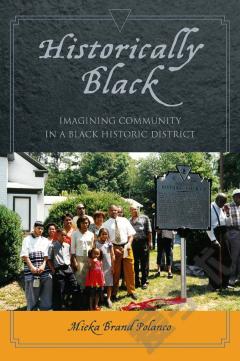Historically Black
In HistoricallyBlack, Mieka Brand Polanco examines the concept of community in the UnitedStates: how communities are experienced and understood, the complexrelationship between human beings and their social and physical landscapes-andhow the term community is sometimes conjured to feign a cohesiveness thatmay not actually exist. Drawing on ethnographic and historical materials fromUnion, Virginia, Historically Black offers a nuanced and sensitive portrait of a federally recognized HistoricDistrict under the category Ethnic Heritage-Black.Since Union has been home to a racially mixedpopulation since at least the late 19th century, calling it historicallyblack poses some curious existential questions to the black residents whocurrently live there. Union's identity as a historically black communityencourages a perception of the town as a monochromatic and monohistoriclandscape, effectively erasing both old-timer white residents and newcomerblack residents while allowing newer white residents to takeon a proud role as preservers of history.Gestures to community gloss an oversimplifiedperspective of race, history and space that conceals much of the richness (andcontention) of lived reality in Union, as well as in the larger United States.They allow Americans to avoid important conversations about the complex andunfolding nature by which groups of peopleand social/physical landscapes are conceptualized as a single unified whole. This multi-layered, multi-texturedethnography explores a key concept, inviting public conversation about thedynamic ways in which race, space, and history inform our experiences andunderstanding of community.
{{comment.content}}








 京公网安备 11010802027623号
京公网安备 11010802027623号